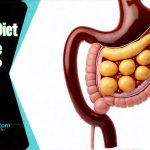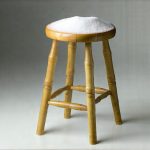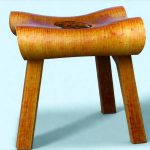The ketogenic diet, popularized for its potential weight loss benefits and metabolic effects, often relies on high-fat intake. Within the keto community, “fat bombs” have emerged as a popular method to increase fat consumption – typically small, concentrated snacks designed to deliver a significant dose of dietary fat. While seemingly innocuous, and frequently presented as a delicious way to stay ‘on track’ with a ketogenic lifestyle, consistent and excessive reliance on these dense, often highly processed, fat-rich treats can sometimes lead to unexpected digestive distress, most notably experiencing frequent soft bowel movements or even loose stools. This isn’t necessarily an indication of failing keto, but rather a signal that something within the dietary approach needs adjustment. It’s vital to understand why this happens and how to address it without derailing your overall goals.
The issue often arises not from fat itself – our bodies are remarkably adaptable when it comes to utilizing fats as fuel – but from the sheer quantity, type, and rapid introduction of these fats, combined with potential individual sensitivities or underlying digestive issues. Many fat bomb recipes incorporate ingredients like coconut oil, nut butters, cream cheese, and sugar alcohols (erythritol, xylitol etc.), all of which can contribute to gastrointestinal discomfort in certain individuals when consumed in large amounts. Furthermore, the concentrated nature of these snacks bypasses some of the slower digestive processes associated with whole food fat sources, leading to a more rapid influx into the intestines. This article will explore the mechanisms behind soft bowel days linked to overindulging in fat bombs, and offer strategies for mitigating this uncomfortable side effect.
Understanding the Digestive Impact
The primary reason fat bombs can lead to soft or loose stools is related to how our digestive system processes fats. Dietary fat isn’t simply absorbed; it requires emulsification (breaking down into smaller droplets) by bile salts produced in the liver, and then enzymatic action from pancreatic lipase to be broken down further into absorbable components like fatty acids and glycerol. A sudden, large intake of fat – as is typical with frequent fat bomb consumption – can overwhelm this system. The gallbladder may struggle to release enough bile quickly enough, leading to incomplete fat digestion. Undigested fats then reach the colon, drawing water in, resulting in softer stools. Understanding the Role of the Gallbladder can provide more insight into this process.
Another factor is the type of fat used in many recipes. Medium-chain triglycerides (MCT oil), frequently touted for its rapid absorption and potential energy boost, are indeed quickly digested. However, this very speed can contribute to digestive upset if consumed excessively or without adequate adaptation. Coconut oil, rich in MCTs, falls into this category. Similarly, large quantities of nut butters can be difficult for some individuals to digest due to their fiber content and the presence of phytates, which can interfere with nutrient absorption.
Finally, sugar alcohols are notorious for causing digestive issues. While they provide sweetness without significantly impacting blood sugar, many people experience bloating, gas, and diarrhea when consuming large amounts, as the gut bacteria struggle to process them effectively. This is often amplified in fat bombs, where concentrated doses of these sweeteners are common. It’s important to remember that everyone’s digestive system is unique, and tolerance levels for these ingredients vary significantly. Recognizing sensitivities – such as those from sugar alcohols – can be a game changer.
Identifying Potential Culprits within Your Fat Bomb Recipe
Pinpointing the exact ingredient causing the problem requires a bit of detective work. Start by examining your fat bomb recipes closely. – Is it heavily reliant on coconut oil or MCT oil? – Does it contain significant amounts of sugar alcohols like erythritol, xylitol, or sorbitol? – Are you using large quantities of nut butter, particularly peanut butter (which can be more difficult to digest for some)? – Consider the overall fat content: is each serving exceptionally high in fat compared to your usual dietary intake?
A process of elimination can be incredibly helpful. Try swapping out ingredients one at a time and observing how your body responds. For example, replace coconut oil with avocado or olive oil (both sources of healthy fats but digested differently), or substitute sugar alcohols with a small amount of stevia or monk fruit extract. Keep a food diary to track what you’re eating and any associated digestive symptoms. This will help reveal patterns and identify specific triggers. Don’t underestimate the power of simple observation; your body is often telling you exactly what it doesn’t like. If overeating causes issues, understanding pancreatic stress may also be beneficial.
The Role of Gut Microbiome & Adaptation
The health of your gut microbiome plays a crucial role in how effectively you digest fats, sugar alcohols, and other ingredients found in fat bombs. A diverse and thriving gut microbiome can better handle these substances, while an imbalanced one may struggle, leading to digestive discomfort. Repeated exposure to large amounts of sugar alcohols or highly processed fats can further disrupt the gut microbiome, creating a vicious cycle. Digestive rest days could help restore balance.
Adaptation is also key. If you’re new to a ketogenic diet or rapidly increasing your fat intake, your body needs time to adjust and upregulate bile production and pancreatic lipase activity. This process takes weeks or even months. Rushing into high-fat consumption with frequent fat bombs without allowing for adequate adaptation can overwhelm the digestive system. Gradual increases in fat intake are always preferable to sudden spikes.
Strategies for Mitigation & Prevention
Addressing soft bowel days from fat bomb overuse isn’t about eliminating them entirely; it’s about finding a balance and making informed choices. Here’s how: – Reduce Frequency: Limit your consumption of fat bombs to occasional treats rather than daily staples. – Portion Control: Even if you enjoy them, keep portion sizes small. A single, well-formulated fat bomb is less likely to cause issues than multiple servings. – Ingredient Swaps: As mentioned earlier, experiment with substituting ingredients that might be causing problems (e.g., coconut oil for avocado, erythritol for stevia). – Prioritize Whole Food Fats: Focus on incorporating healthy fats from whole food sources like avocados, nuts, seeds, olive oil, and fatty fish as the foundation of your fat intake. – Support Gut Health: Consider incorporating probiotic-rich foods (yogurt, kefir, sauerkraut) or a quality probiotic supplement to support a healthy gut microbiome. – Hydration: Staying adequately hydrated is crucial for digestion and can help prevent constipation, which sometimes masquerades as soft stools.
Most importantly, listen to your body. If you consistently experience digestive issues after consuming fat bombs, it’s likely time to reassess your approach. A ketogenic diet should be nourishing and sustainable, not a source of discomfort. Don’t fall into the trap of believing that more fat is always better; quality and mindful consumption are far more important than sheer quantity. If symptoms persist or worsen, consulting with a registered dietitian or healthcare professional can provide personalized guidance and rule out any underlying medical conditions. Recognizing liver toxicity from supplements is also important for overall health. Consider how to ease bowel expectations if you’re struggling with regularity.


















